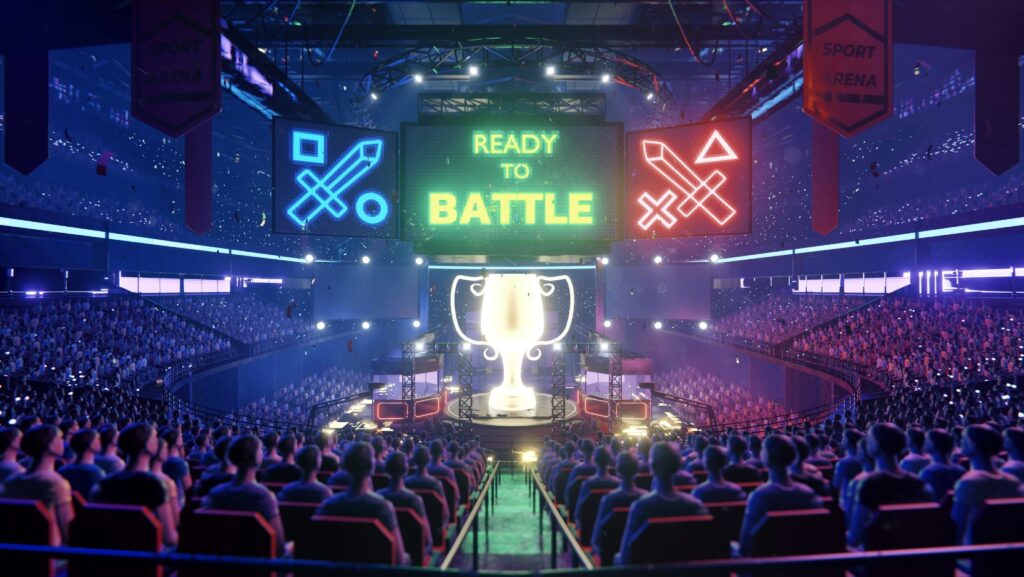In the rapidly evolving world of esports, the legal landscape is just as dynamic. As the industry’s popularity and profitability surge, it’s increasingly important to keep up with the latest legal developments. From player contracts and team franchising to intellectual property rights and litigation, esports law is a burgeoning field that’s making headlines.
This article delves into the most recent and significant legal news in esports. Whether you’re an esports professional, an avid fan, or a legal enthusiast, you’ll find the insights here compelling and relevant. Stay tuned as we navigate the intricate and fascinating legal corridors of the esports world.
The Current Landscape of Esports Law
Navigating the esports legal field presents a unique set of challenges. Let’s delve into the key players and the legal issues they face.
Identifying the Major Players of the Industry
 In esports, major players fall into three main categories, namely, game developers, players, and tournament organizers. Game developers shape the playing field by determining the rules for their games, such as Riot Games with League of Legends. Players, either independent or part of esports teams like Team Liquid, are the main attraction, contributing significantly to the popularity of esports. On the other hand, tournament organizers, like Eleague, conduct gaming events and tournaments, each having diverse geographical and game-specific audiences.
In esports, major players fall into three main categories, namely, game developers, players, and tournament organizers. Game developers shape the playing field by determining the rules for their games, such as Riot Games with League of Legends. Players, either independent or part of esports teams like Team Liquid, are the main attraction, contributing significantly to the popularity of esports. On the other hand, tournament organizers, like Eleague, conduct gaming events and tournaments, each having diverse geographical and game-specific audiences.
Understanding the Legal Issues Faced by Esports
Esports legal landscape is fraught with complexities, ranging from intellectual property to contract issues. For game developers, obtaining and maintaining intellectual property rights over their games, characters, and other elements becomes paramount in the face of potential infringement. Contrastingly, players often face difficulties regarding their contracts, whether it’s understanding the fine print or negotiating their terms. Lastly, tournament organizers face a myriad of challenges, including broadcasting rights issues to dealing with sponsorship agreements. Navigating this landscape requires not only a deep understanding of the law but also the unique dynamics of the esports industry.
Esports Legal News
In the esports space, legal developments take center stage as they shape the industry’s growth trajectory. Notably, key considerations include the influence of copyright laws and how contract laws are redefining esports.
The Impact of Copyright Laws on Esports
 Within the buzzing world of esports, copyright laws play an essential role. Game developers, like Riot Games, maintain control over their intellectual property and have the power to determine how their games get portrayed in esports events and broadcasts. Copyright laws, therefore, significantly impact the esports business model, influencing how organizers structure tournaments and negotiate broadcasting rights.
Within the buzzing world of esports, copyright laws play an essential role. Game developers, like Riot Games, maintain control over their intellectual property and have the power to determine how their games get portrayed in esports events and broadcasts. Copyright laws, therefore, significantly impact the esports business model, influencing how organizers structure tournaments and negotiate broadcasting rights.
For instance, game developers often grant licenses to esports organizations to broadcast their games. These licenses specify the terms of use for the developer’s intellectual property, penning rules and restrictions for the broadcasts. Thus, the interplay between copyright laws and esports is a vital aspect of the industry’s legal landscape.
How Contract Laws are Shaping Esports
Esports is witnessing a shift, largely influenced by the impact of contract laws. The competitive nature between esports teams necessitates well-structured contracts, which—alongside the talent of the players—can govern an organization’s success. Teams secure their top players through robust contracts, ensuring consistent performances throughout tournament seasons.
For instance, an esports player’s contract might cover topics such as tournament participation, streaming obligations, and endorsement deals. These contracts are complex and demand a detailed understanding of contract law. Therefore, contract laws are not only shaping esports but also driving its evolution in the global sports industry.
Litigation and Esports
 The esports industry is a battleground for legal complexities. From player contracts to intellectual property rights, every facet of this burgeoning sector is under the legal microscope. As esports continues to rise in popularity, so does the necessity for a solid understanding of the legal landscape. The key players in the industry—game developers, players, and tournament organizers—face unique legal challenges that require a comprehensive grasp of both the law and the esports environment.
The esports industry is a battleground for legal complexities. From player contracts to intellectual property rights, every facet of this burgeoning sector is under the legal microscope. As esports continues to rise in popularity, so does the necessity for a solid understanding of the legal landscape. The key players in the industry—game developers, players, and tournament organizers—face unique legal challenges that require a comprehensive grasp of both the law and the esports environment.
The influence of copyright and contract laws is shaping the industry’s growth. Game developers are leveraging copyright laws to control their intellectual property, affecting tournament organization and broadcasting negotiations. On the other hand, well-structured contracts are becoming crucial in securing top players and ensuring their performance.

